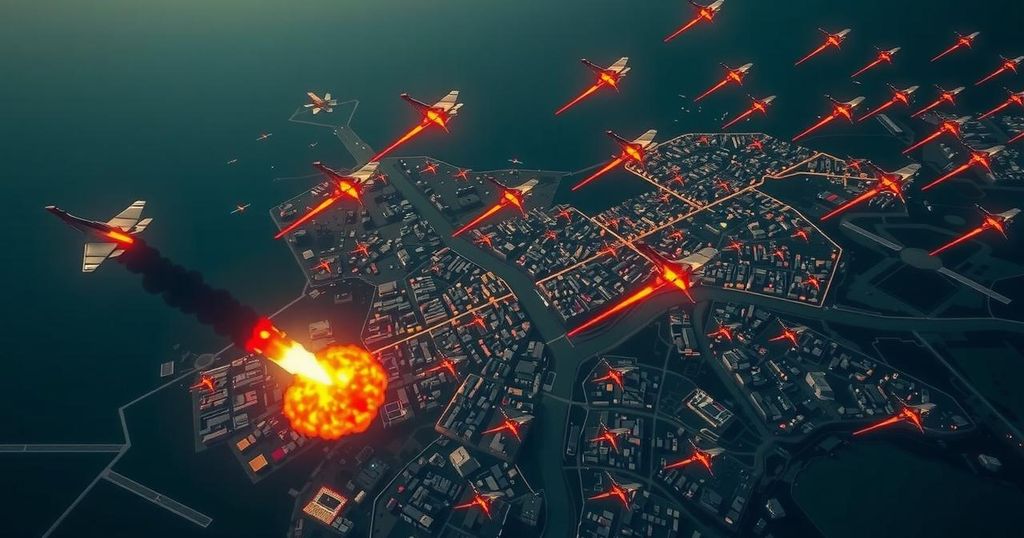Escalation of Israeli Airstrikes in Lebanon and Gaza Amid Humanitarian Crisis
Israeli airstrikes have targeted various locations in Lebanon and Gaza, resulting in numerous casualties, including civilians. Concerns regarding military operations and humanitarian crises are mounting, with notable strikes on hospitals and schools, and accusations of Hezbollah’s use of civilian areas for military purposes. The conflict continues to escalate as diplomatic efforts are sought to address the situation effectively.
Israeli airstrikes continue to target Lebanon and Gaza amidst ongoing conflict, with significant casualties reported. A strike outside Rafik Hariri University Hospital in Beirut resulted in the deaths of at least four individuals, including one child, which health authorities confirm. Notably, this strike took place in an area not designated for evacuation, leading to scrutiny of military operations. Furthermore, Israel claims to have identified a Hezbollah bunker beneath another hospital, assertions that Sahel General officials dismissed as unfounded, aligning with similar warnings issued prior to assaults on medical facilities in Gaza. In northern Gaza, aid remains elusive for the Jabalya refugee camp, where humanitarian conditions have deteriorated significantly; the United Nations reported severe casualties in recent military actions. Graphic footage from Gaza’s Civil Defense depicts alarming scenes following an Israeli attack on a United Nations school, resulting in ten fatalities with many wounded, primarily comprising women and children. The Israeli military has intensified its campaign in Lebanon, totaling over 3,200 targeted locations since October 1st, focusing on various Hezbollah infrastructures. In contrast, Hezbollah has claimed to have executed numerous attacks against Israeli forces, framed as support for Palestinian residents in Gaza. Furthermore, there are calls from far-right Israeli factions for establishing Jewish settlements in Gaza, exacerbating tensions. Amidst this backdrop, U.S. Secretary of State Antony Blinken has embarked on a diplomatic mission to the region, seeking to address ongoing crises and facilitate negotiations for hostages. The Iranian UN mission has warned that U.S. military aid could implicate them in Israeli aggressions. Meanwhile, the psychological toll of the conflict resonates deeply within the Israeli Defense Forces, as demonstrated by the tragic story of an Israeli reservist who succumbed to post-traumatic stress disorder (PTSD). This ongoing conflict remains historically significant, marking one of the bloodiest periods since the founding of Israel.
The current conflict between Israel and Hamas, which escalated following the October 7, 2023, attacks, has resulted in widespread devastation both in Gaza and Lebanon. Continued military operations have triggered a humanitarian crisis in the region, raising urgent concerns about civilian safety, the accessibility of aid, and the tragic loss of life. With accusations and counterclaims regarding the presence of terrorist activities within civilian infrastructure, the situation necessitates a careful examination of the implications of such military strategies on both humanitarian grounds and international relations.
The escalation of hostilities between Israel and Hezbollah, compounded by the dire humanitarian situation in Gaza, underscores the urgent need for diplomatic intervention. The ongoing military operations have precipitated a significant humanitarian crisis, necessitating accessible aid for displaced individuals, while the psychological impact on military personnel underscores broader societal implications of prolonged conflict. Addressing these issues through diplomatic negotiation is crucial to mitigate further violence and restore regional stability.
Original Source: www.cnn.com




Post Comment